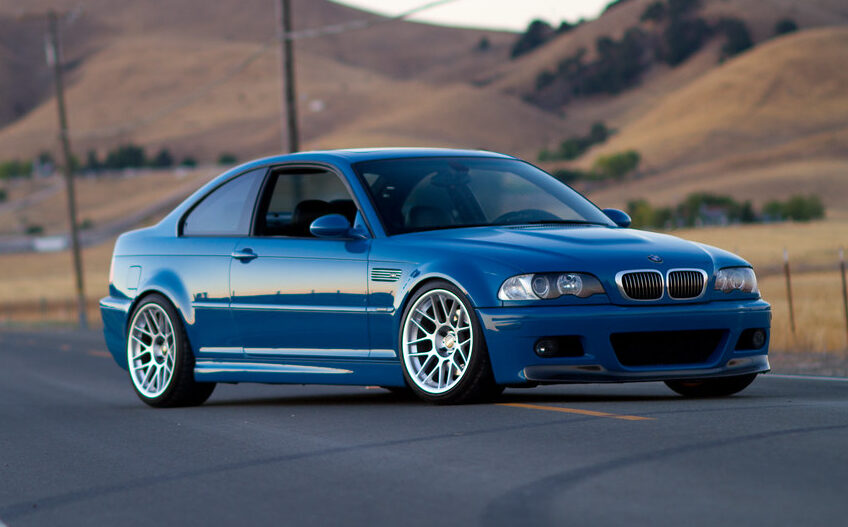
Why Do S54 Rod Bearings Fail? A Guide for BMW E46 M3 Owners
The S54 engine, found in the BMW E46 M3 and a few other high-performance models, is celebrated for its inline-six configuration and impressive power output. However, like any complex mechanical component, it has its share of issues, and one of the most notorious is rod bearing failure. In this article, we will delve into what rod bearings are, why they fail in the S54 engine, and how to prevent or address this issue.
Click here to see pricing on rod bearings
Click here to see our recommended aftermarket part vendors
What Are Rod Bearings?
Rod bearings are crucial components in an engine’s bottom end, where they connect the connecting rods to the crankshaft. They serve as the interface between the rotating crankshaft and the reciprocating motion of the pistons and connecting rods. Properly functioning rod bearings are essential for maintaining the engine’s smooth operation and longevity.

Why Do S54 Rod Bearings Fail?
Rod bearing failure in the S54 engine has been a concern for many enthusiasts and owners. Several factors contribute to this problem:
- Oil Quality and Maintenance: The S54 engine is highly dependent on clean and high-quality engine oil. Neglecting oil changes or using oil with insufficient lubrication properties can accelerate wear on the rod bearings.
- High-Revving Nature: The S54 engine is known for its ability to rev high and produce power at high RPMs. This characteristic places additional stress on the rod bearings, making them more prone to wear and fatigue.
- Heat and Stress: As the engine operates, rod bearings are subjected to significant heat and stress. Over time, these factors can cause wear and lead to bearing failure.
- Manufacturing Tolerances: Some believe that manufacturing tolerances in early S54 engines were not as tight as they should have been, which could have contributed to premature bearing wear.
- Aggressive Driving: Enthusiasts who push their S54-powered vehicles to the limit, especially on the track, can accelerate the wear on rod bearings due to the high-stress conditions.

Click here to see pricing on rod bearings
Consequences of Rod Bearing Failure
If the rod bearings in an S54 engine fail, it can have serious consequences, including:
- Engine Damage: Rod bearing failure can lead to severe engine damage, including bent connecting rods, damaged crankshafts, and piston damage.
- Engine Seizure: In extreme cases, bearing failure can result in complete engine seizure, rendering the vehicle inoperable.
- Costly Repairs: Rebuilding or replacing an S54 engine with rod bearing damage can be a costly endeavor, involving extensive labor and parts expenses.

Preventing or Addressing Rod Bearing Failure
- Regular Oil Changes: Consistent and timely oil changes with high-quality engine oil are essential to maintaining proper lubrication for the rod bearings.
- Upgraded Bearings: Some owners opt to replace the stock rod bearings with higher-quality aftermarket bearings designed to withstand higher loads and reduce wear.
- Monitoring: Regular oil analysis and monitoring of oil pressure and engine temperatures can help detect early signs of bearing wear or oil-related issues.
- Adjusting Driving Habits: If you own an S54-powered vehicle, it’s essential to be mindful of your driving habits, especially during high-stress conditions. Avoid extended periods of high RPM operation, and allow the engine to warm up properly before pushing it hard.

While the S54 engine is a marvel of performance engineering, its rod bearings are a known weak point that require careful attention. Regular maintenance, the use of high-quality oil, and proactive monitoring can help prevent or address rod bearing issues and ensure the longevity and reliability of this iconic powerplant. For enthusiasts, maintaining a healthy engine is key to enjoying the full potential of the S54.

Rod bearings are small but crucial components nestled within the engine of your BMW M3. They play a pivotal role in the engine’s operation by connecting the connecting rods to the crankshaft. This connection allows the reciprocating motion of the pistons and connecting rods to be converted into rotational motion, ultimately driving the crankshaft and generating power.

Why Rod Bearings Matter
- Lubrication: Rod bearings are subjected to substantial heat and friction due to their proximity to the crankshaft. Proper lubrication is essential to reduce friction and prevent overheating, ensuring the engine’s smooth operation.
- Performance: High-performance engines, like those found in the BMW M3, place increased stress on rod bearings due to their higher RPM capability. Strong, durable bearings are critical for withstanding these demands and delivering the power and performance M3 owners crave.
Click here to see pricing on rod bearings
Click here to see our recommended aftermarket part vendors

Common Rod Bearing Issues
Despite their significance, rod bearings can be a source of concern for BMW M3 owners. Several factors contribute to rod bearing issues:
- Oil Quality and Maintenance: The quality of engine oil and regular oil changes are paramount for rod bearing health. Neglecting oil changes or using subpar oil can lead to premature wear and bearing failure.
- High-Revving Nature: BMW M3 engines are known for their ability to rev high and deliver power at high RPMs. This characteristic places additional stress on the rod bearings, making them more susceptible to wear and fatigue.
- Aggressive Driving: Enthusiastic driving, especially on the track, can increase the load and stress on rod bearings. Continuous high-stress conditions can accelerate wear.

Preventing Rod Bearing Issues
- Regular Oil Changes: Consistent and timely oil changes using high-quality engine oil are fundamental to rod bearing health. This helps maintain proper lubrication and reduce friction.
- Upgraded Bearings: Some M3 owners opt to replace the stock rod bearings with higher-quality aftermarket bearings designed to withstand higher loads and reduce wear.
- Oil Analysis: Periodic oil analysis can provide insights into the health of your rod bearings and overall engine condition.
- Driving Habits: Be mindful of your driving habits, especially during high-stress conditions. Avoid prolonged periods of high RPM operation and ensure proper warm-up before pushing the engine to its limits.

Rod bearings may be small components, but they play an enormous role in the performance and longevity of your BMW M3’s engine. Maintaining them through regular maintenance, proper lubrication, and monitoring is essential to ensure your M3 continues to deliver its exhilarating driving experience. Treat your rod bearings with care, and your M3 will reward you with years of thrilling drives on the open road or the track.











